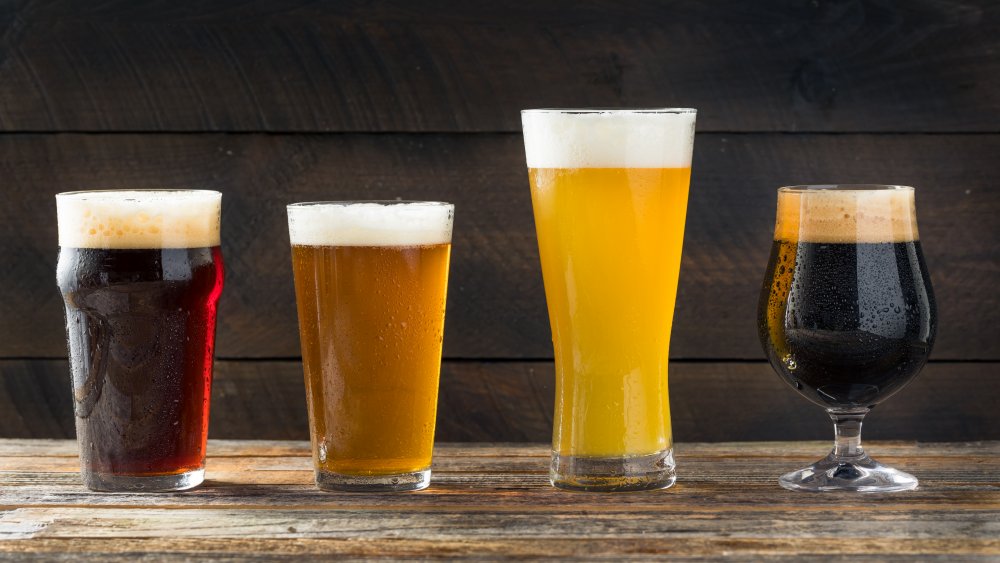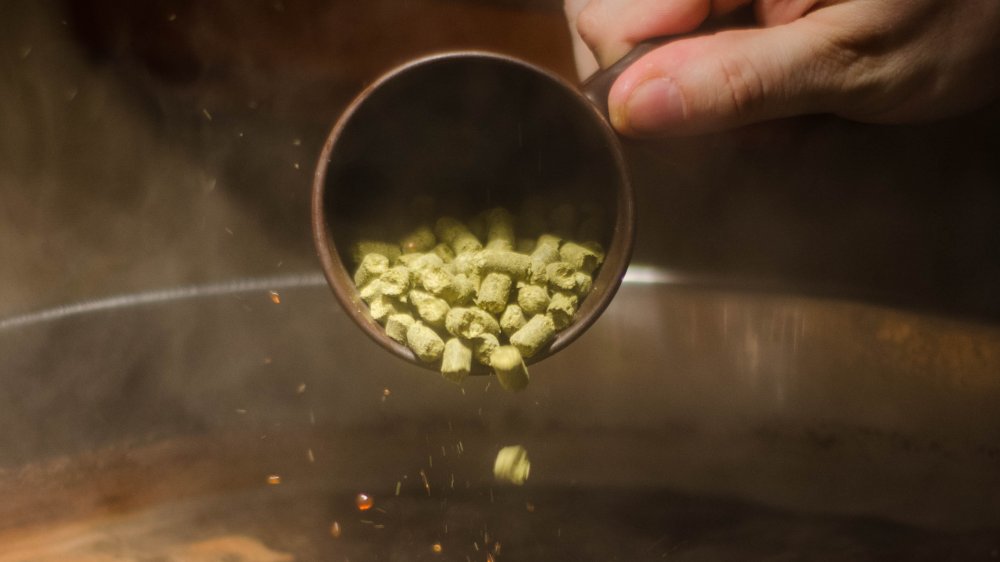The Biggest Mistake You're Making When Brewing Beer
Brewing beer, which is done through fermentation, is like any other kind of cooking — it's a careful science. If any single factor is off, then the final product will also be affected. Luckily, with a little troubleshooting, there are ways to hack any problems you might have while home brewing.
Some of the most common mistakes while brewing beer include using equipment that isn't clean. Dirty hands, equipment, and surfaces in the area where you brew can all introduce bacteria into what you're cooking up (which ruins it), so be sure that everything is exceptionally clean before you begin (via Kegerator).
Also, try to remember to keep things simple when you first start out making your own beer. It can be so tempting to dive in with too-high of ambitions, but that means you will be more likely to fail. It's also vital that you follow the instructions word for word to ensure your batches turn out well. Again, this is a science, so treat it as such if you want your beer to be great.
The biggest mistake people make when brewing beer
While taking short cuts, using expired ingredients, and being impatient are bad practices for brewing beer at home, there's one thing that is incredibly important for good beer and it's probably the most common mistake people make — you have to use good water before you brew your batch (via Paste). City tap water often has additives and other things in it that can affect your beer. The purest water you can find is the best choice for brewing beer to eliminate any potential reactions to whatever could be in your water. Another way to sidestep this problem is to boil your water before using it for brewing. If you do boil the water, it is really important to let it cool with the lid on so it stays clean until it is time to brew.
Water is the most important ingredient for beer because it is the canvas for the taste and quality of the fermented drink. So if you have to take an extra step or a little more care to ensure the water is good to go, it will be well worth it in your final product. Spring water is one of the best sources for water without contaminants if you can get it.
And finally, temperature fluctuation should be carefully monitored because it can really affect how the yeast ferments and therefore the taste of the beer.

